Information for Patients
Points to remember in hospital life
Make sure to wear your name band on your wrist
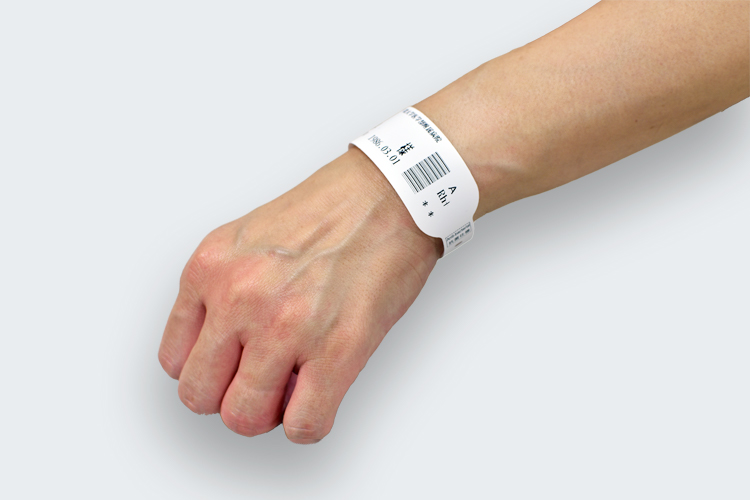
A name band shows a patient's name and patient card number, etc. To provide safe medical care, we check the band for identification when drawing blood, administering medication and intravenous drips, conducting laboratory tests and operations. In such cases, we also ask a patient to tell his or his name and birthdate to hospital staff. Your cooperation is much appreciated.
We might ask you to transfer your room
The hospital mainly deals with patients in the acute phase of their treatment. When a patient requires long-term recuperation, he or she may be transferred to a medical institution suitable for recuperation, or a different room or ward in accordance with his or her condition, so that we can accept patients requiring critical care.
Limit valuables you bring to minimum and keep them in a safe
To prevent accidents or theft, keep the valuables you bring with you to a minimum. The hospital is not responsible for any stolen or lost items. If you have to bring valuables to the hospital, keep them in the safe inside the bedside cabinet. They are your responsibility. We have security cameras installed for crime prevention and security.
Permission is required for going or staying overnight out of the hospital
Do not go out of the hospital during hospitalization without permission. When you have to go out or stay overnight outside the hospital due to unavoidable circumstances, consult with your doctor or nurse for permission.
We don't answer telephone inquiries
We do not answer inquiries by telephone about patients. We will not put a patient on the line. We take only emergency messages.
Attendant is allowed only with permission by doctor or nurse
Nurses take care of patients during hospitalization, so attendants are not required. It is possible for a family member to attend to a patient only when his or her family requests and a doctor or nurse approved it because of his or her conditions. A bed for an attendant costs 600 yen per night. Consult with ward staff.
No drinking nor smoking inside the hospital
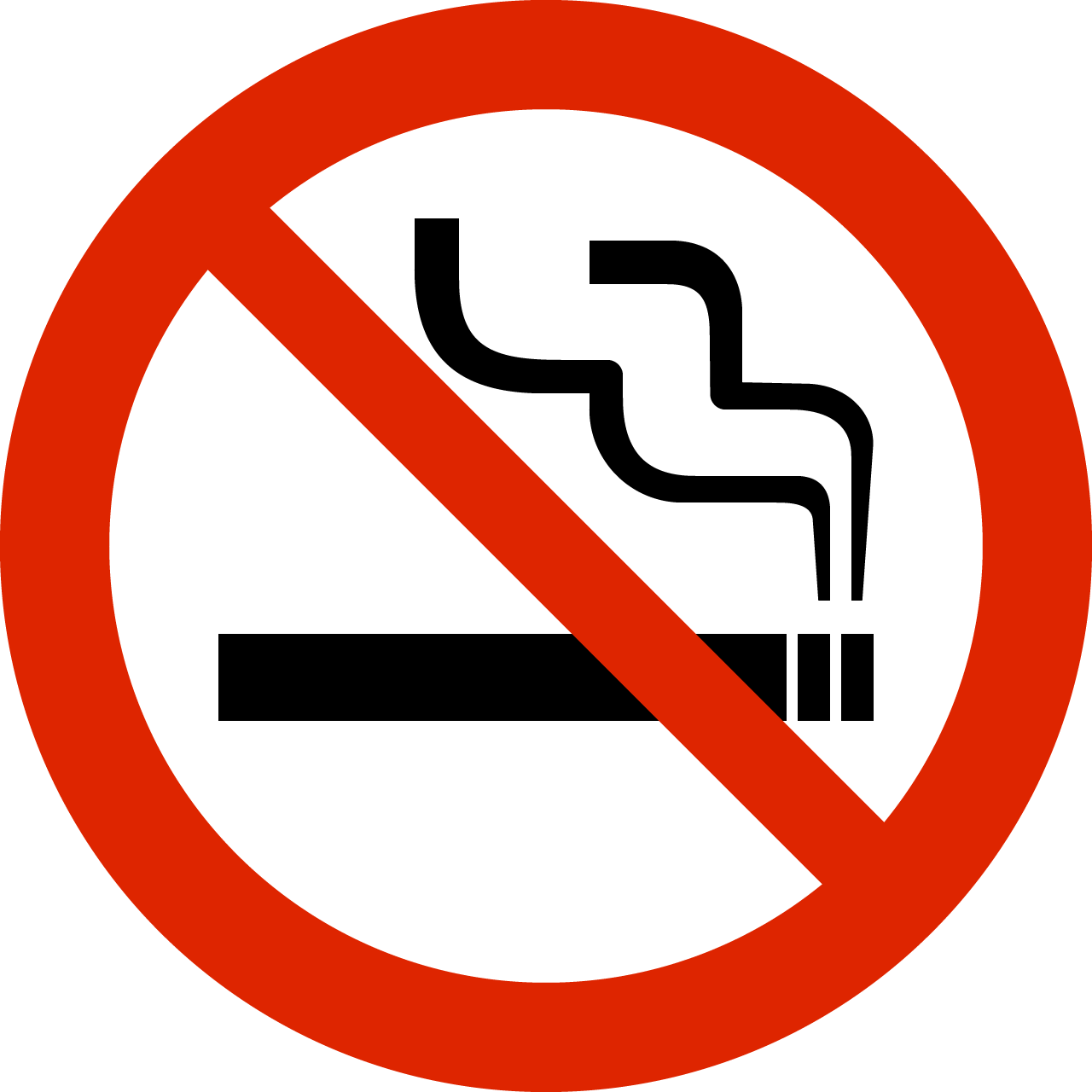
- During the hospitalization, refrain from drinking alcoholic beverage and smoking, including e-cigarettes.
- Smoking is completely prohibited in the hospital, including outdoor and parking areas.
No perishables allowed
Refrain from bringing perishables such as fresh flowers or fruit to hospital wards.
Be cautious about unexpected falls
People might fall in unexpected places due to changes in the environment, their physical condition or the effects of treatments they receive. Sustaining injuries due to a fall can extend hospitalization and cause delays in treatment or laboratory tests.
Points to be careful about
-
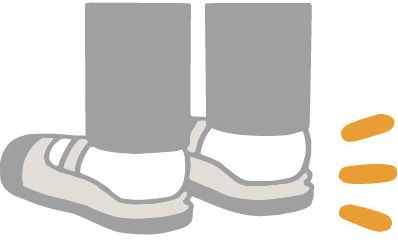
- Do not step on the back of your shoe
- Slippers are not allowed. Refrain from stepping on the back of your shoe as it can cause you to fall.
-
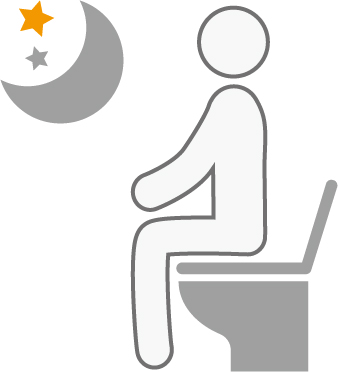
- Go to the lavatory before lights-out
- You could fall while going to or returning from a lavatory in the dark after lights-out. Be sure to go to lavatory before lights-out.
-
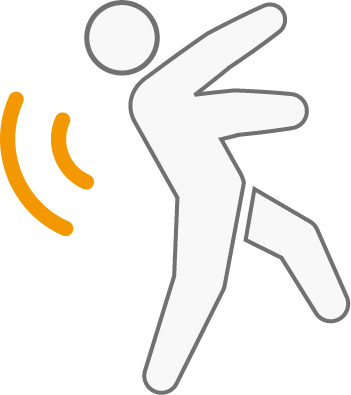
- Danger when getting up
- You can stagger when you get up hastily. Get up slowly by holding the side rail of your bed.
-
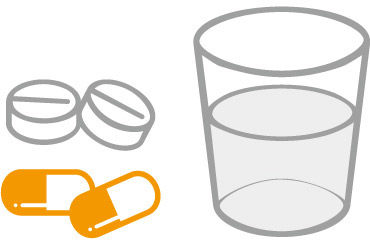
- Danger of staggering due to medication effects
- You may stagger after taking sleeping pills or painkillers. If you feel dizzy, call a nurse before getting up.
-
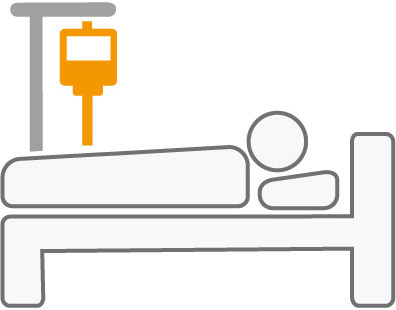
- Danger after operation or laboratory test
- You may stagger after an operation and/or laboratory test due to fever, anemia and/or low blood pressure. Take it easy and go slow.
-
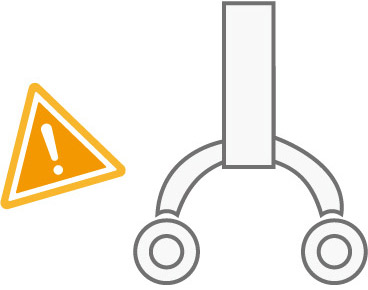
- Danger involving casters
- Leaning on overbed tables or intravenous drip stands is dangerous because they are on casters and thus can move. When getting into or out of your bed, hold onto the bedside rail.
Preventing falls
-
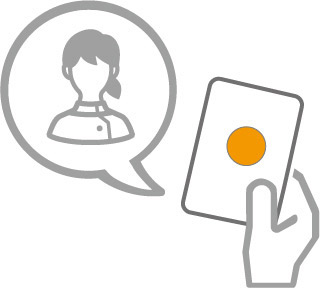
- Nurse call
- When you spend several days in bed for treatment and laboratory tests, your muscles become weak, making you susceptible to falls. Do not be overconfident about your physical strength, and call a nurse with the nurse call button.
-
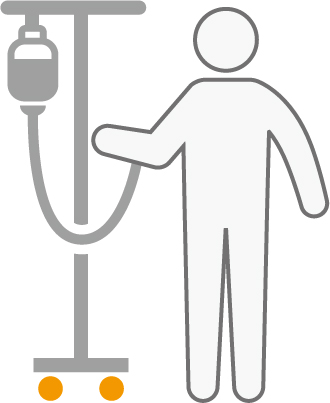
- Moderate exercise
- To prevent disuse syndrome (reduced physical functions caused by maintaining the same posture for a long time), patients are encouraged to move their body by following instructions about how much they can move and other advisories given by staff.

